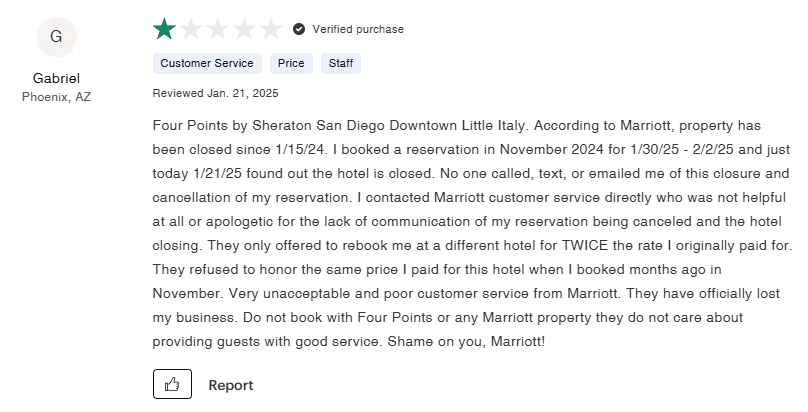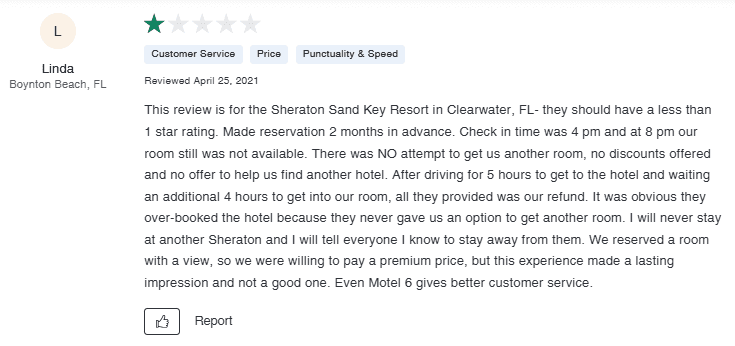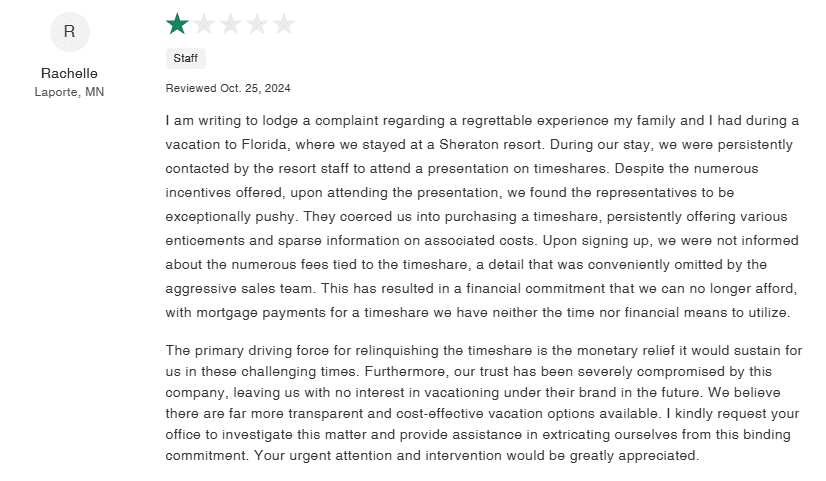Sheraton Timeshare Exit

If you've ever stayed at a Sheraton Hotel or—worse—own a timeshare with them, you might already have an idea of what we're about to say. On the surface, Sheraton Hotels & Resorts is a well-known, globally recognized brand, a subsidiary of Marriott International. It boasts over 446 hotels worldwide, with a presence across North America, Africa, Asia, Europe, and beyond. Sounds impressive, right? But as many timeshare owners can tell you, things aren’t always what they seem.
If you’re stuck in a Sheraton timeshare, you might be looking for an exit strategy. Let’s break down exactly why that might be the case and what you need to know before making your move.
A Quick Look at Sheraton's History
Founded in 1937 by Ernest Henderson and Robert Moore, Sheraton Hotels was the first hotel chain listed on the New York Stock Exchange. Over the decades, the brand expanded rapidly, acquiring properties internationally. By 1998, Starwood Hotels & Resorts acquired Sheraton for $13.3 billion. Then, in 2016, Marriott International took over Starwood, making Sheraton part of the largest hotel group in the world.
If you originally bought a timeshare through Starwood Hotels, there’s a strong chance you’re now dealing with Sheraton under Marriott. That shift, unfortunately, hasn't been smooth for all owners. Changes in management, policies, and costs have left many timeshare owners frustrated and looking for a way out.
The Downsides of Owning a Sheraton Timeshare
Here are some of the biggest complaints that owners—and even hotel guests—have had about Sheraton properties:

1. Customer Service Woes
Let’s start with the obvious—customer service. Sheraton’s reputation in this area is... not great. With a 1.4-star rating on ConsumerAffairs from 190 reviews, many customers have shared their frustrations. Complaints range from unhelpful staff to serious booking issues.
If you think dealing with customer service for a hotel booking is frustrating, imagine trying to get clear answers about canceling a timeshare contract. Not only that, but also having to deal with pushy timeshare sale tactics that would generate a headache for everyone involved.



2. Hidden Fees & Billing Issues
Many guests (and timeshare owners) have reported surprise charges on their bills. Some have been hit with unexpected fees, while others have dealt with incorrect charges that took forever to resolve.


3. Cleanliness & Maintenance Problems
Sheraton properties are not immune to upkeep issues. Guests at the Sheraton Grand Mirage Resort in Australia reported filthy pools, ants crawling on outdoor tables, and debris in the lagoon. Others have encountered malfunctioning amenities and outdated rooms that don’t match the high-end image that Sheraton tries to sell.
When you own a timeshare, these issues aren’t just a one-time bad stay—they’re an ongoing concern. If a resort isn’t being properly maintained now, what happens in a few years?
4. Controversies & Bad Press
Sheraton’s track record isn’t spotless. Here are just a few notable incidents:
- 2006: The Cuban Delegate Incident – Sheraton Mexico City expelled Cuban delegates due to U.S. political pressure, causing an international scandal.
- 2023: Sheraton Phoenix Crescent Hotel Closure – Following an electrical fire, the Sheraton Phoenix Crescent Hotel remained closed for nearly two years. Attempts to sell the property at auction were unsuccessful, leaving its future uncertain.
- 2025: Development Disputes in Australia – Environmental groups have pushed back against Sheraton’s plans to build an 18-story resort in Hervey Bay, raising concerns about local wildlife and skyline disruption.
These incidents may not directly affect your timeshare, but they show a pattern of missteps and controversies that could impact the brand’s reputation—and, by extension, the value of your investment.
How Are People Trying to Escape Their Sheraton Timeshares?
If you're feeling trapped in your Sheraton timeshare, you’re not alone. Here are the most common ways people are trying to get out:
1. Selling or Renting It Out
Some owners try selling their timeshare on resale sites, only to discover that the resale market is practically dead. Renting it out can be an option, but finding renters consistently can be a major hassle.
2. Negotiating with Sheraton
You can attempt to negotiate a surrender with Sheraton, but this can be a slow and difficult process. Some owners have succeeded, but only after months (or even years) of back-and-forth communication.
3. Hiring a Timeshare Exit Company
This is the route that many owners take when all else fails. A good timeshare exit company can help navigate the legal and financial aspects of breaking free from a Sheraton contract. However, you need to be cautious—some exit companies are scams themselves.
What to Look for in a Timeshare Exit Company
If you decide to go this route, here are a few things to keep in mind:
- Reputation: Check reviews, ratings, and any history of complaints.
- Transparency: Avoid companies that demand large upfront fees without explaining their process.
- Success Rate: A reputable company should have a track record of successfully helping others out of their timeshare agreements.
Final Thoughts
Sheraton Hotels may have a long history, but their timeshares? Not exactly a dream investment. Between lackluster service, surprise fees, property issues, and a sketchy track record, it’s no surprise that many owners want out.
If you’re ready to explore your options, consider reaching out to a reputable timeshare exit company. Just make sure to do your research and find one that truly has your best interests in mind.


